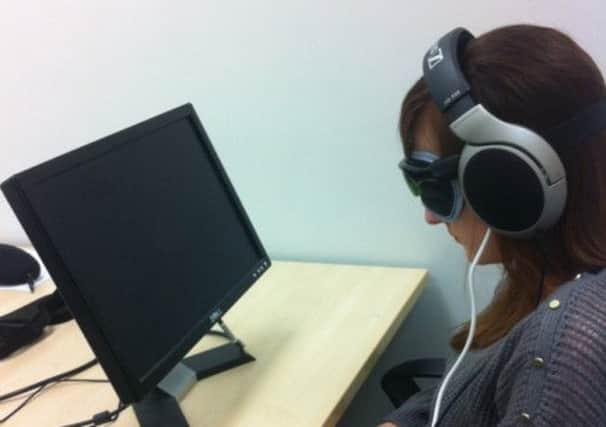Blind people have ‘more accurate’ memories


Experts at the University of Bath discovered that individuals with no visual experience had the most superior verbal and memory skills.
A team from the University’s Department of Psychology ran memory tests on groups of congenitally blind people, those with late-onset blindness and sighted people.
Advertisement
Hide AdAdvertisement
Hide AdEach participant listened to a series of word lists and was then asked to recall what they had heard.
Research has previously shown people can falsely “remember” words related to those said.
For example, hearing “chimney”, “cigar” and “fire” could trigger a false recollection of the word “smoke”.
The university team, in collaboration with a research assistant from Queen Mary University of London, found congenitally blind people remembered more words and were less likely to create false memories.
Sighted and late blind participants remembered fewer words that were said, and more that were not.
Dr Achille Pasqualotto, postdoctoral researcher and first author of the study, said: “We found that congenitally blind participants reported significantly more correct words than both late-onset blind and sighted people.
“Most of the congenitally blind participants avoided unrelated words, therefore congenitally blind participants can store more items and with a higher fidelity.”
Distortions and illusions within human memory are well documented in scientific and forensic work and appear to be a basic feature of memory functioning.
Advertisement
Hide AdAdvertisement
Hide AdSeveral studies previously suggested that blind people –especially those with no visual experience – possess superior verbal and memory skills.
Dr Michael Proulx, who led the university study, added: “Our results show that visual experience has a significant negative impact on both the number of items remembered and the accuracy of semantic memory and also demonstrate the importance of adaptive neural plasticity in the congenitally blind brain for enhanced memory retrieval mechanisms.
“There is an old Hebrew proverb that believes the blind were the most trustworthy sources for quotations and that certainly seems true in this case.
“It will be interesting to see whether congenitally blind individuals would also be better witnesses in forensic studies.”
The information is published in the journal Behavioural Brain Research.